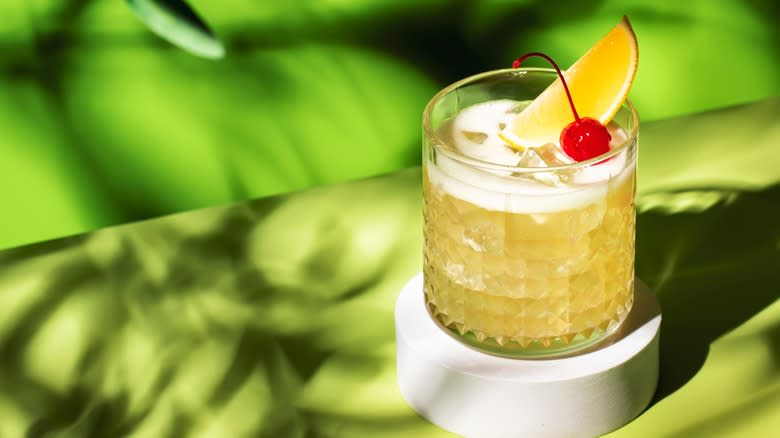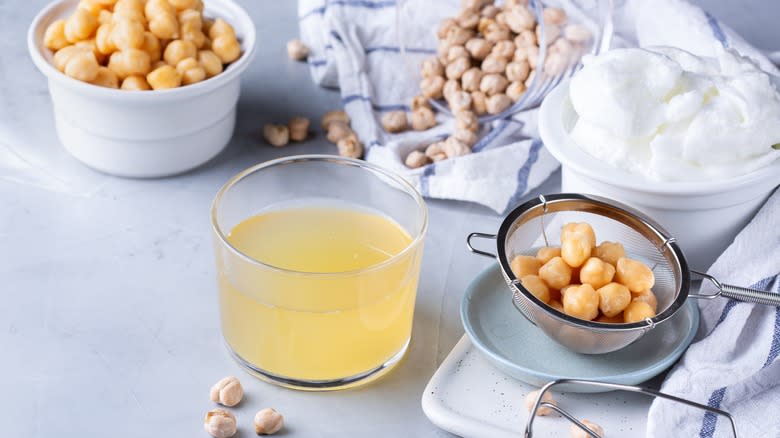A Bartender Explains Why It's Easier Than You Think To Craft Vegan Cocktails

Have you ever thought about whether the beverage menu at a restaurant is vegetarian or vegan? Certainly, food menus tout that dishes are free from either meat or animal products, but rarely is a list of beer, wine, and cocktails given the same classification. Many might assume that all alcoholic beverages are innately free from animal products, but that's not always the case. Take, for instance, isinglass, a product derived primarily from the swim bladders of fish, that is used to fine, or remove sediment, from many wines and even some beers.
We know that most distilled spirits are naturally vegan, but what about the other ingredients commonly called for in cocktail recipes? Tasting Table spoke with John O'Brien, bar manager at TLK, a gluten-free, health-conscious Asian restaurant in NYC, to find out if it is possible to craft a vegan cocktail given the many animal-derived items used by bars. "Over the years, it has gotten much easier to keep cocktails vegan with the introduction of vegan alternatives," O'Brien tells us. "For example, a lot of cocktails -- like the popular whiskey sour -- call for egg whites to add a foamy head and a richer texture. In the past, it's been difficult to find a vegan product that will achieve those results, but today there are more alternative ingredients on the market to use."
Read more: The 40 Absolute Best Cocktails That Feature Only 2 Ingredients
Simple Swaps Make For Vegan-Friendly Sips

As O'Brien notes, egg whites are one of the most overt animal products used behind the bar to create light and fluffy cocktails, and it can be hard to mimic the unique properties of egg whites. More and more vegan-conscious mixologists, though, are turning to an unlikely product that is vegan-friendly and produces similar results. Aquafaba, the liquid in a can of chickpeas, is something most people probably pour down the drain. Yet, when swapped into a recipe for a whiskey sour or gin fizz, the plentiful carbohydrates, and proteins in the liquid foam and create a structure that gives the cocktail a familiar mouthfeel. What's more, aquafaba's muted flavor is completely muted when it is part of a cocktail with rather potent components.
For creamy drinks and those with considerable sweetness, dairy products and honey are often used, both of which are verboten among vegans. O'Brien chooses to establish the round mouthfeel that heavy cream usually provides by adding coconut milk to his cocktails, though he does note that it will give the beverage a touch of tropical flavor. As for replacing honey, O'Brien reaches for another thick and golden syrup: agave nectar. Derived from the agave plant, this lighter-bodied and thinner sweetener doesn't add the exact flavor honey brings, but it is innocuous enough that it doesn't muscle out other flavors.
Read the original article on Tasting Table

